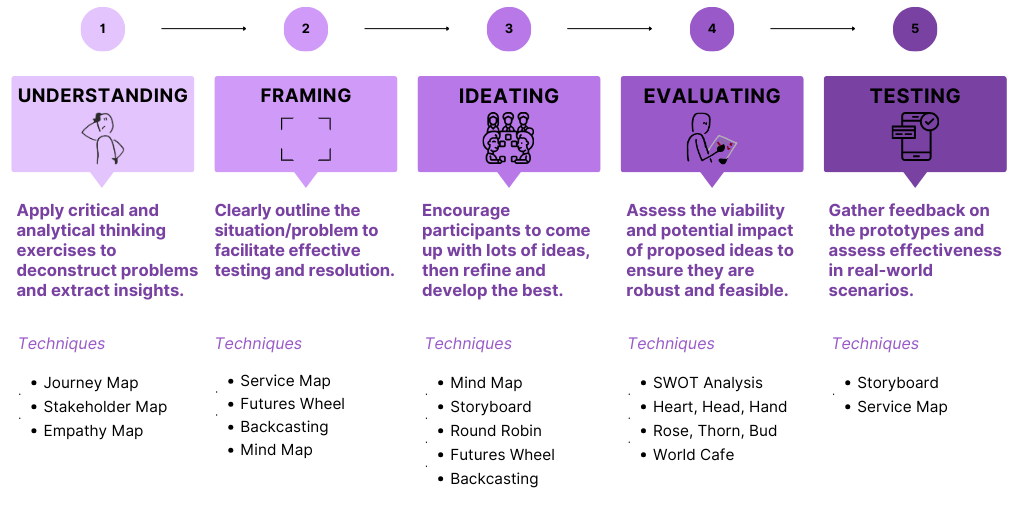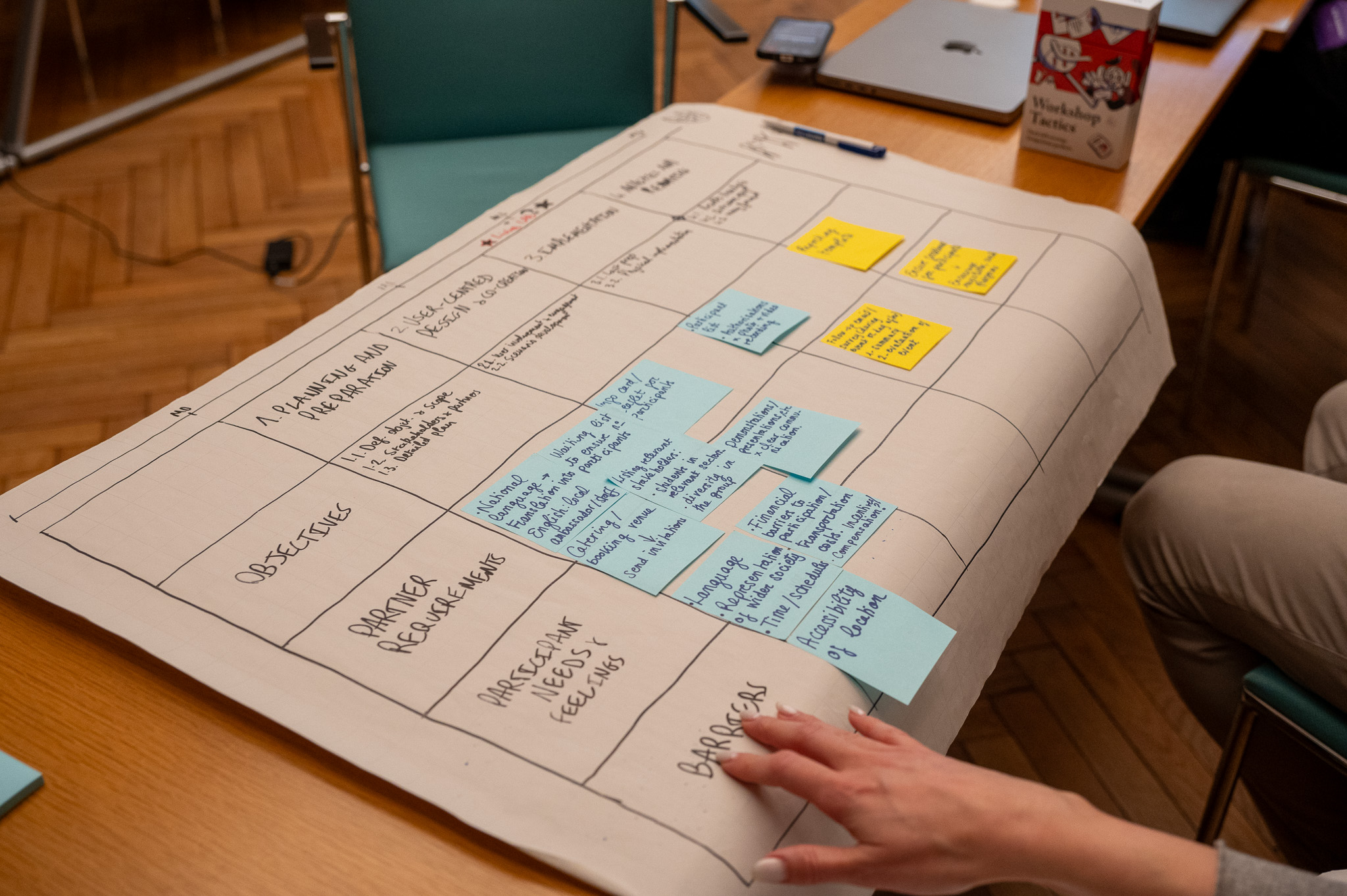At the heart of INNOVADE is the recognition that digital democracy cannot be engineered from the top down. Instead, it must be co-created with the people it serves — citizens, public authorities, CSOs, and researchers alike. That’s why Living Labs are a natural choice: they offer a practical, inclusive, and ethical approach to innovation.
In INNOVADE, Living Labs serve as civic innovation engines — not just to test ideas, but to shape them from the start. By embedding these Labs across the project's work packages and timeline, INNOVADE ensures that its outputs — including the Digital Democracy App and governance frameworks — are socially legitimate, technically sound, and widely usable.
What Are Living Labs?
Living Labs are real-life, real-time environments where innovation is developed with, not just for, users. They bring together diverse actors — citizens, governments, businesses, and researchers — to collaboratively design, prototype, and test new solutions under everyday conditions.
“Living labs provide a practical and dynamic approach to innovation, ensuring that new solutions are not only technically feasible but also socially acceptable and economically viable.”
INNOVADE's Living Lab Principles
Each Living Lab in INNOVADE adheres to these principles:
- Real-Life Environments: everyday settings rather than controlled environments, under realistic conditions.
- User-Centric: Users are actively involved, contributing ideas, feedback, and participation in testing and development. This helps ensure that the innovations meet actual needs and preferences.
- Co-Creation: Multiple stakeholders, including citizens, researchers, companies, and public authorities, collaborate throughout the innovation process. This multidisciplinary approach leverages diverse perspectives and expertise.
- Public-Private-People Partnerships (4Ps): collaboration between public sector (governments and municipalities), private sector (businesses and industries), academia (universities and research institutions), and citizens.
- Iterative Process: Iterative approach where solutions are continuously developed, tested, and refined based on user feedback and real-world performance.
- Sustainability and Scalability: Innovations developed in living labs aim to be sustainable and scalable, addressing broader societal challenges and creating long-term value.
INNOVADE's Living Lab Methodology
The INNOVADE Living Lab methodology is structured around a five-phase innovation journey designed to ensure that solutions for digital democracy are grounded in real-world needs, co-created with diverse stakeholders, and continuously refined through feedback. These five categories — Understanding, Framing, Ideating, Evaluating, and Testing — serve as a scaffold for developing inclusive, effective, and ethical digital tools and practices. This phased approach guides participants from uncovering root issues to shaping viable, scalable solutions through hands-on experimentation and participatory design.
Each category plays a distinct role in the process.
- Understanding involves immersing in user and stakeholder perspectives to uncover unmet needs and contextual factors.
- Framing focuses on clarifying the core challenges and setting a shared direction.
- Ideating is the creative space for imagining possible solutions in collaboration.
- Evaluating introduces structured reflection to assess feasibility, impact, and inclusivity.
- Testing puts prototypes into real-life use, gathering evidence and feedback to refine and improve.

These phases are not strictly linear but are revisited iteratively to adapt to insights and evolving conditions.
The project’s methodology was specifically designed to reflect democratic pluralism by involving individuals with diverse levels of digital access and a broad spectrum of political perspectives. It addresses regulatory challenges through rigorous legal and ethical compliance, led by ICT Legal , ensuring adherence to EU standards on data protection and AI governance. At its core, the methodology emphasises trust and usability, embedding human-centred and inclusive design practices through the collaboration of partners such as Fundación Cibervoluntarios, Hybrid Core, and DFKI. It also functions as a feedback engine, enabling continuous refinement of the Digital Democracy App and related policy tools based on iterative insights gathered through real-life testing and stakeholder engagement.
INNOVADE’s Living Labs at a Glance
INNOVADE’s Living Labs are where research becomes practical, real-world solutions. Each lab follows three phases: planning and preparation (about three months ahead), co-creation and design (about two months ahead), and finally implementation and feedback, where participants test ideas and help improve them. This process brings together researchers, citizens, public officials, civil society groups, and technical and legal experts. The goal is to make sure the project’s results — like the Digital Democracy App, the Grading Toolkit, the Knowledge Base, and the governance and procurement toolkits — are useful, inclusive, and ready for real-life application. The Living Labs are closely connected to the project's major results and play a central role in shaping them.

Rather than focusing on the living labs as standalone events, the real story is in what they help create. For example, co-creation through Living Labs supports the development of the Digital Democracy App (developed and piloted in WP4), a user-friendly application that allows citizens to engage with democratic processes online. The Grading Toolkit for digital democracy (created in WP2) is shaped through participatory sessions that explore how digital participation can be measured and improved. The Governance and Procurement Toolkits (developed in WP3) are informed by living labs where public officials and stakeholders explore legal, technical, and institutional requirements for effective digital governance. Meanwhile, the Inclusive Access Strategy and Educational Materials (WP5) are co-designed with participants of varying digital skills to ensure no one is left behind. Finally, insights from all living labs contribute directly to the Policy Recommendations and Roundtables (WP6), ensuring the project’s ideas reach decision-makers in clear, actionable form.
Each Living Lab will be presented with a dedicated page, including a short summary of results, images, videos, and a condensed version of the lab report, making it easy for anyone to see how INNOVADE’s outcomes are built together — with users, for users —to shape the future of digital democracy.
Get involved!
Want to participate in a Living Lab?
Interested in testing the Digital Democracy App?
Have feedback on our democratic futures?

